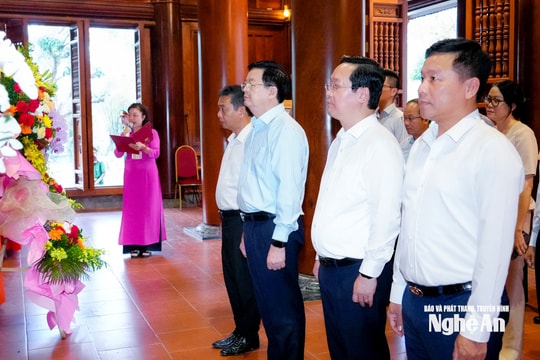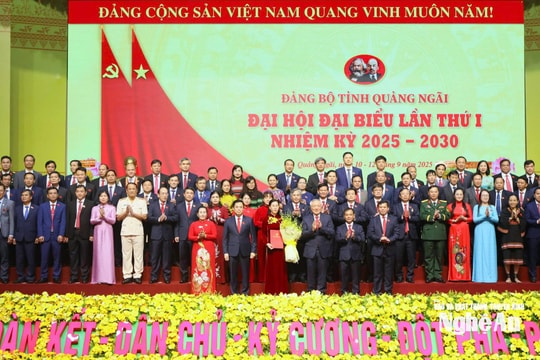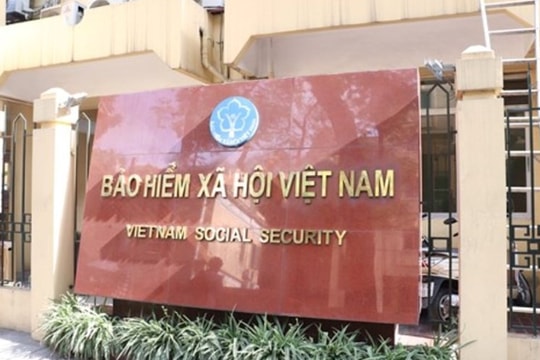Deputy Prime Minister Vuong Dinh Hue: Corruption is petty but its consequences are not petty at all.
(Baonghean.vn) - Responding to delegates' opinions on solutions to combat petty corruption, Deputy Prime Minister Vuong Dinh Hue emphasized that petty corruption is a social evil that causes public outrage. Although it is petty corruption, its consequences are not petty at all and proposed a series of Government solutions in this field.
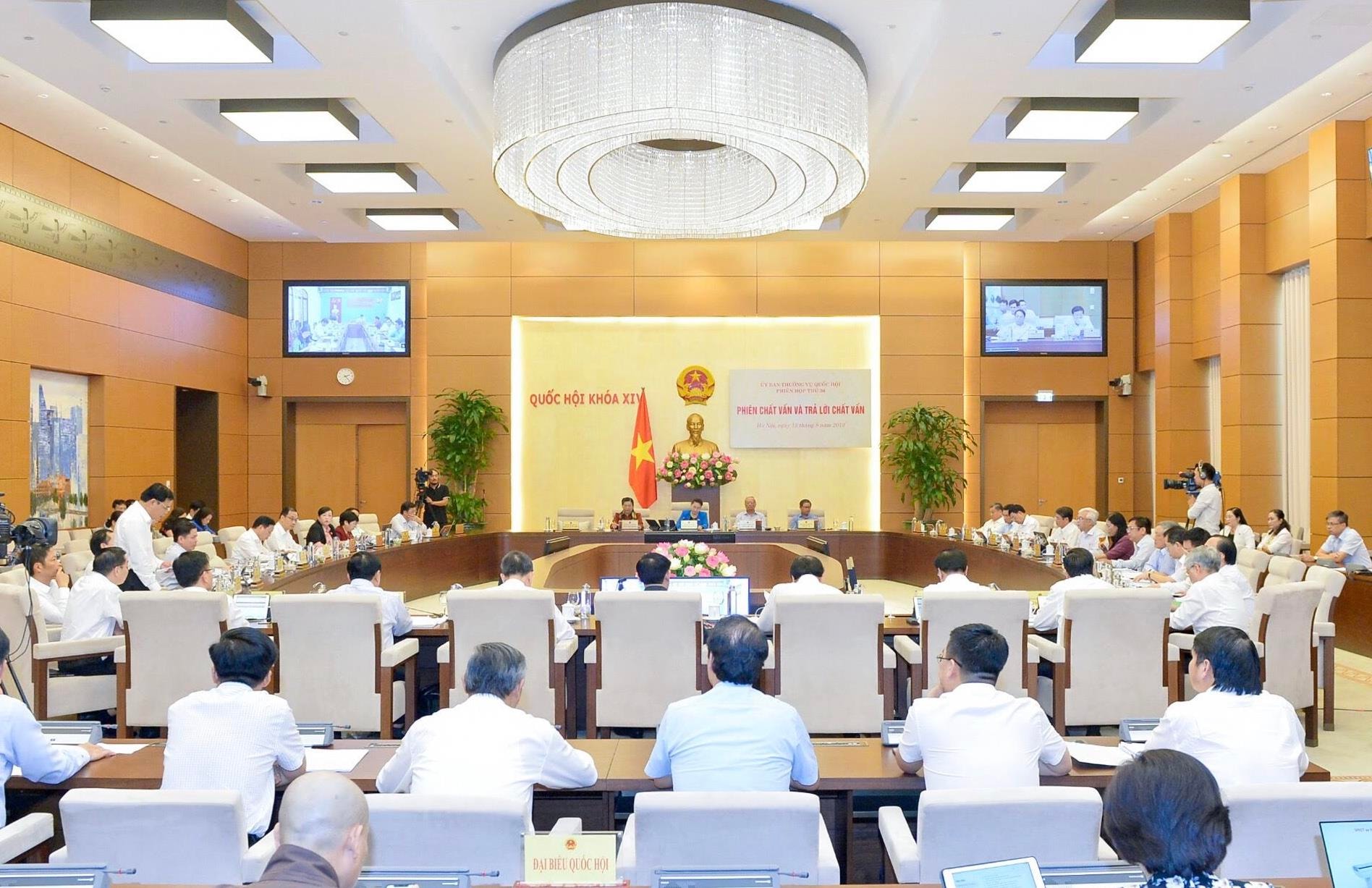 |
| On the afternoon of August 15, at the 36th session, the National Assembly Standing Committee continued to organize a question-and-answer session on the implementation of resolutions and conclusions of the National Assembly Standing Committee on thematic supervision and questioning from the beginning of the term to the end of 2018.Comrade Nguyen Thi Kim Ngan - Politburo member, Chairwoman of the National Assembly chaired the discussion session. Also attending at the Hanoi bridge were Comrade Vuong Dinh Hue - Politburo member, Deputy Prime Minister and leaders of ministries and branches. Photo: VGP/Nhat Bac |
The question and answer session was held online at 63 locations nationwide. At Nghe An location, Comrade Nguyen Thanh Hien - Member of the Provincial Party Committee, Deputy Head of the Provincial National Assembly Delegation chaired. Also attending was Comrade Cao Thi Hien - Member of the Provincial Party Committee Standing Committee, Vice Chairman of the Provincial People's Council.
Resolutely prevent and combat petty corruption
Referring to the work of preventing and combating corruption, Deputy Prime Minister Vuong Dinh Hue affirmed that, in addition to fighting major economic and corruption cases, the Party's policies, the Central Steering Committee on preventing and combating corruption, and resolutions of the National Assembly Standing Committee and the National Assembly all emphasize the issue of preventing and combating petty corruption.
Petty corruption is a social evil that causes public outrage and is related to the ethics of civil servants and public employees. Although it is petty corruption, its consequences are not petty at all. The consequences of petty corruption are the corruption of the ethics of civil servants and public employees in the process of performing their duties; eroding the trust of the people and businesses, and increasing unofficial costs.
Therefore, implementing the Central Committee's policies and the National Assembly's resolutions, the Government has proposed many solutions including: Perfecting the legal system, especially the law on economic management, ensuring consistency, clarity, and non-overlapping to avoid arbitrariness in law enforcement; perfecting regulations on regulations and procedures in public service performance responsibilities, public service ethics, especially the responsibilities of leaders.
 |
| Deputy Prime Minister Vuong Dinh Hue. Photo: Cf |
The Government also directed to promote administrative reform, transparency, and application of information technology in handling administrative procedures, striving to provide level 4 public services; along with inspection and supervision.
In addition, building a team of cadres, civil servants and public employees; focusing on planning, training, appointment and rotation, especially in risky sectors; raising legal awareness among the people, promoting the role of the people and the media in this field.
The Prime Minister issued Directive No. 10 dated April 22, 2019 on strengthening the handling and effective prevention of harassment and inconvenience to people and businesses in handling work and also organized a national conference on this issue. With the solutions pointed out, the Deputy Prime Minister believes that in the coming time, the work of preventing and combating petty corruption will have many changes.
At the question and answer session, 35 delegates asked questions, 3 delegates debated, 14 Ministers and the Chief Justice of the Supreme People's Court reported and directly answered questions on issues under their management and administration responsibilities. Deputy Prime Minister Vuong Dinh Hue, on behalf of the Government, spoke to clarify some of the questions.
Follow up and monitor the monitored content to the end
Concluding the question and answer session, National Assembly Chairwoman Nguyen Thi Kim Ngan said that this was the first time the National Assembly Standing Committee had re-supervised issues that had been supervised and questioned at meetings of the National Assembly Standing Committee.
The questioning and answering of questions at this session shows the continuity and comprehensiveness in the National Assembly's supervisory activities, demonstrating the sense of responsibility of the National Assembly, National Assembly agencies, and National Assembly deputies in following and supervising to the end the supervised contents.
The question and answer session is also an opportunity for Government members to report, explain, and clarify existing issues and limitations, and propose policies and solutions for continued implementation in the coming time. This is extremely important, especially in the context of the whole country making efforts to exceed the socio-economic development goals set for the entire term.
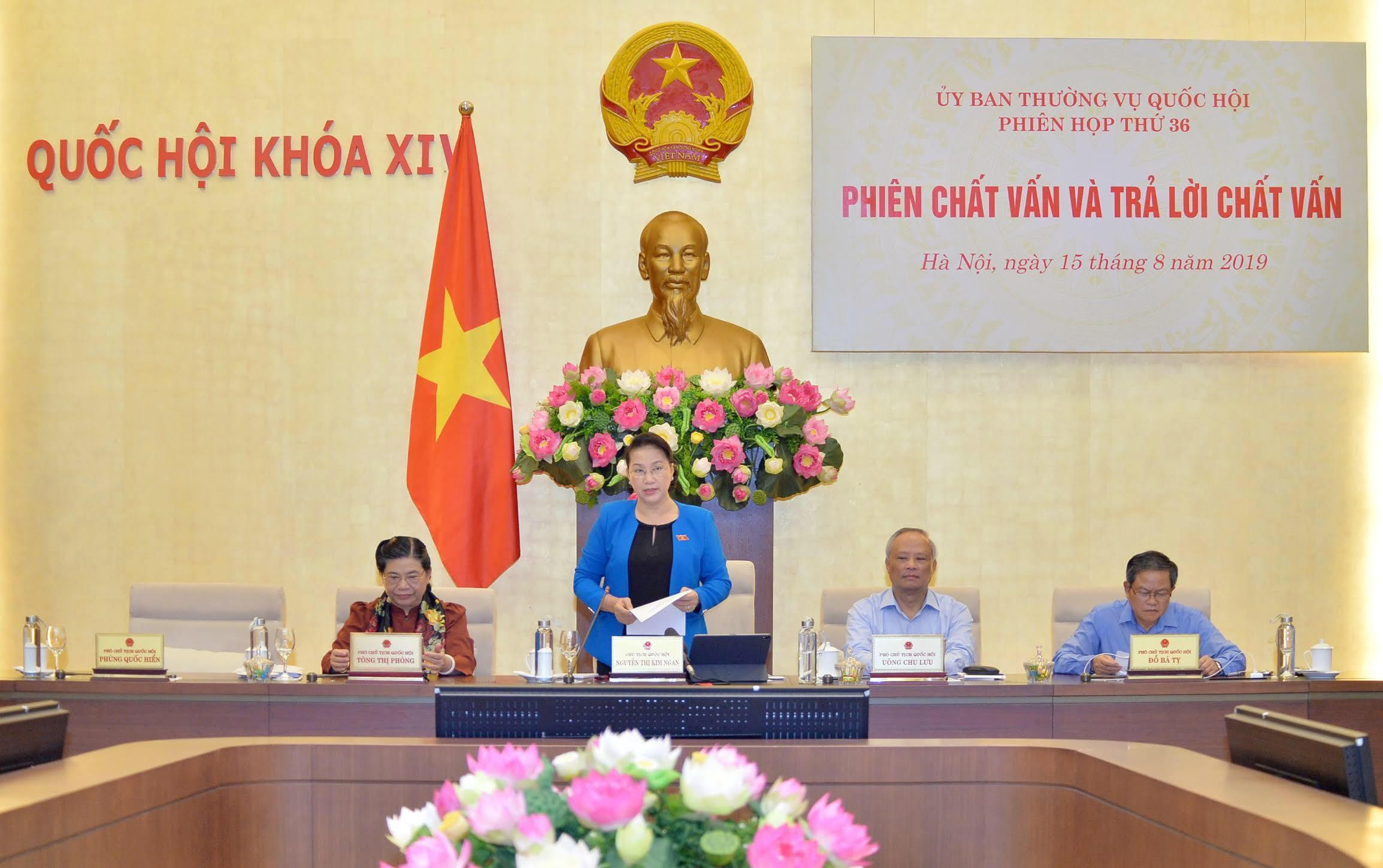 |
| National Assembly Chairwoman Nguyen Thi Kim Ngan speaks at the question and answer session. Photo: VGP/Nhat Bac |
The National Assembly Chairman assessed that the Ministers had spent time carefully preparing for the questions, had a firm and comprehensive grasp of the issues in the sectors and fields under their charge, frankly accepted responsibility, stated objective and subjective causes, and especially proposed solutions for implementation in the coming time.
The overall picture in implementing the requirements of the National Assembly Standing Committee in implementing the supervisory resolutions and the conclusions of the interpellation has many bright spots. However, according to the Chairman of the National Assembly, there are still many contents, many targets and requirements that have not been achieved, have not been completely resolved, or still have difficulties and problems that need fundamental solutions to implement and overcome.
Therefore, the Government and relevant ministries and branches need to continue to effectively implement the requirements in the resolutions and conclusions of the National Assembly Standing Committee.

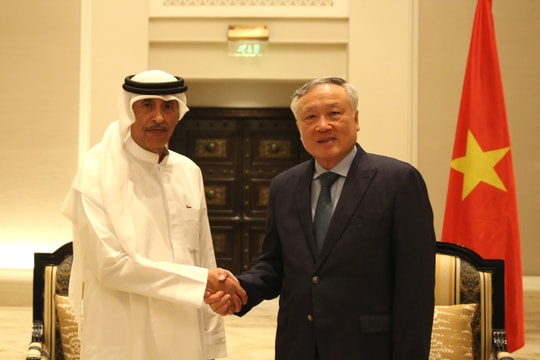
.jpg)


